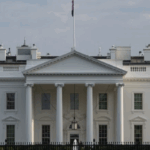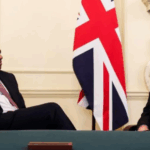Chancellor Rachel Reeves has pledged that the government will do “everything in its power” to protect UK households and businesses from potential economic shocks linked to the escalating conflict between Iran and Israel, including a possible spike in global energy prices.
Speaking on BBC’s Sunday with Laura Kuenssberg, Reeves refused to rule out any policy responses, stating she would not “take anything off the table” amid concerns that a prolonged crisis could push up petrol prices and reignite inflation.
Her comments came as global oil markets reacted to recent military exchanges between Israel and Iran. The price of oil rose sharply on Friday following the initial strikes, prompting fears of a ripple effect across fuel costs, transportation, and food prices. Although the price of oil currently hovers around $75 a barrel—below the levels seen during the early stages of the Ukraine war in 2022—it remains volatile amid fears of wider regional disruption.
“There is no complacency from myself or the Treasury,” Reeves said, adding that the government was closely monitoring developments. While she acknowledged that the situation had not yet reached the severity seen in 2022—when oil prices soared to nearly $130 a barrel—she warned that continued instability, particularly involving shipping through the critical Strait of Hormuz, could worsen the outlook.
In 2022, the former Conservative government implemented direct financial support to households to help cope with soaring energy bills. Reeves said the current situation does not yet warrant such intervention, noting that average household energy bills are expected to fall in July due to lower wholesale prices.
However, she emphasised that the current conflict underlines the importance of strengthening domestic energy security. “A lack of investment in our own domestic energy production has left us exposed,” she said, pointing to measures unveiled in last week’s Spending Review. These include increased investment in nuclear power, wind energy, carbon capture and storage, and home insulation.
Some of those initiatives could have an impact in the short term, such as insulation schemes to reduce household energy use, she noted.
Former BP chief executive Lord John Browne, speaking on the same programme, supported the focus on energy independence but cautioned that many of the government’s goals were ambitious and could take longer than planned to deliver.
Meanwhile, Shadow Chancellor Sir Mel Stride warned that the broader economic implications of the conflict—including potential effects on inflation, interest rates, and market stability—posed serious challenges. He argued the UK economy remains too fragile and criticised the government’s tax and spending policies, saying they had contributed to prolonged inflationary pressure.

















